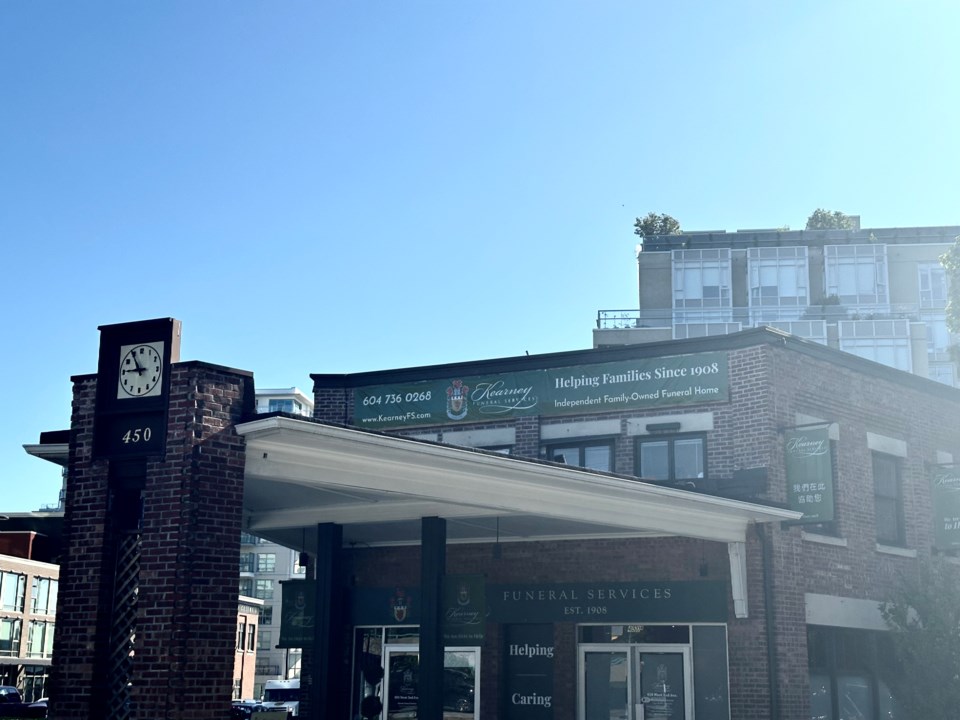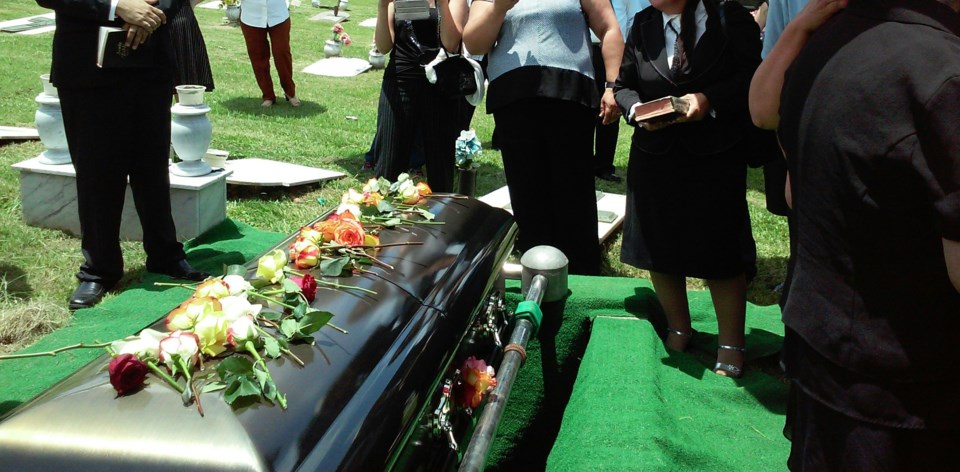There is always that one stranger at the funeral service who is neither a family member nor a close friend, but they know everything about the deceased.
They can be unobtrusive but always appear when needed.
They are serious and sympathetic, but they are also compassionate, caring, and considerate.
They might not know the departed, but they celebrate the life that the deceased once lived.
This person is known as the funeral director — the omnipresent support for people who are grieving.
What does a funeral director do?
A funeral director’s job begins with the ring of a phone call from the deceased family.
“They sit on the phone 24/7 and answer the calls,” Chief Executive Officer of Kearney Funeral Services Ryan Crean says. “A lot of times, when people are dealing with loss, they want to talk to a live person and have them answer any questions."
After the death of a loved one, a lot of responsibilities suddenly fall on the lap of the deceased’s family — ranging from searching for a suitable resting place, to finding the perfect casket, to organizing a dignified ceremony. These are all tasks that need to be done in moments of distress. That’s why the role of the funeral director is significant because they will become someone the mourning family can depend on.
“Loss is a very destabilizing event. It feels chaotic. It feels like the world is crumbling down. And there’s a lack of control that comes along with that,” Crean, who works at one of the oldest funeral homes in British Columbia, remarks. “I think that as a funeral director, you can provide families a level of stability and make a real impact on how they feel at the time,” he adds.
Funeral directors are “jacks-of-all-trades”
There are funeral homes that specialize in one kind of ceremony, serving a certain community. However, more often than not, funeral directors are “jack-of-all-trades” — serving families from various cultures and different religions.
“A really good director will help the family to plan a service that’s going to be meaningful to them and the family is going to remember it for the rest of their lives,” Crean points out. “When someone that you really care about dies, you really only have one opportunity to say goodbye, and the ceremony really makes a big difference,” he says.
Each family the funeral director serves is unique, making it necessary for a director to possess a distinct blend of compassion, organizational prowess, and resilience to serve people of diverse faiths, cultures and circumstances.
A director must be skilled in handling sensitive conversations and situations respectfully while being able to navigate the emotional toll of dealing daily with grief and loss.

Why would someone become a funeral director?
As you can already imagine, constantly dealing with grief can be emotionally and mentally challenging. Then why would anyone want to be working with the dead?
Being a funeral director is an “absolutely amazing” job, says Crean.
Crean has been a licensed funeral director for more than 15 years and his family has been working in the industry for over a century. Kearney first opened for business in Vancouver in 1908.
“I think the ability to profoundly impact people's lives on a daily basis and to help people at a very difficult time, sometimes the most difficult time in the world, is incredibly rewarding,” he says.
Crean also mentions that people who have experience with funeral directors making significant differences in their lives are usually more likely to be attracted to working in funeral services.
How to become a funeral director?
Funeral directors are trained workers, as they need to go to school for two years to learn about the technical aspects of the role and be in an apprenticeship in a funeral home.
According to Work BC, completion of a one- to two-year college program and a 12- to 20-month practical apprenticeship program during or following the educational program is usually required for funeral directors. The pay range for a fully licensed Funeral Director in British Columbia runs between $57,000 to $67,000.
However, despite the work security that the position brings, it is still difficult for funeral homes to recruit directors.
“I think education is generally the barrier to entry for the position because they are skilled,” Crean observes. “The barrier makes finding a licensed funeral director or an embalmer a little bit more challenging,” he adds.
Crean also says that the industry currently welcomes people who care about looking after others and want to serve others.



